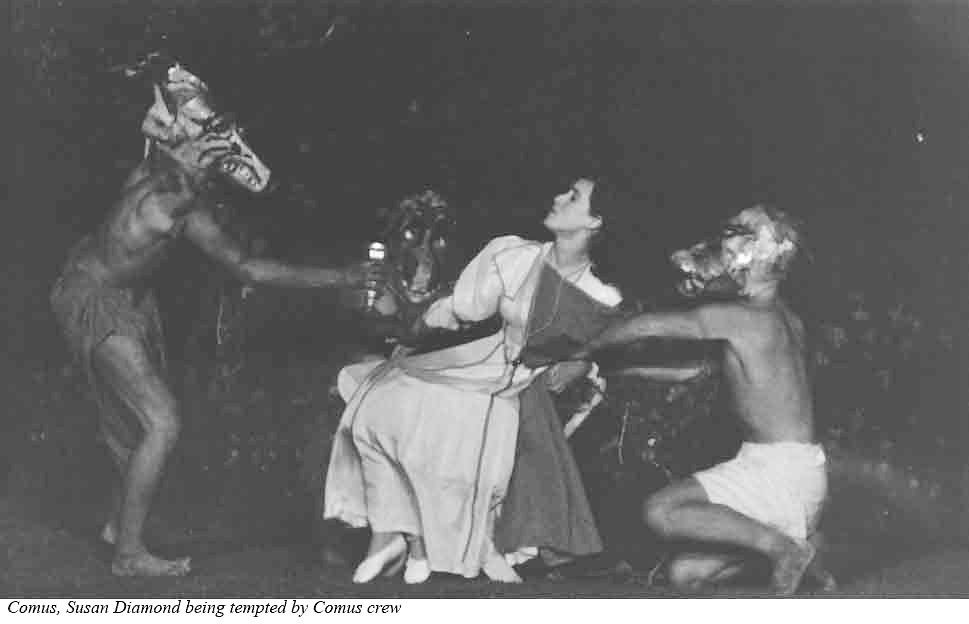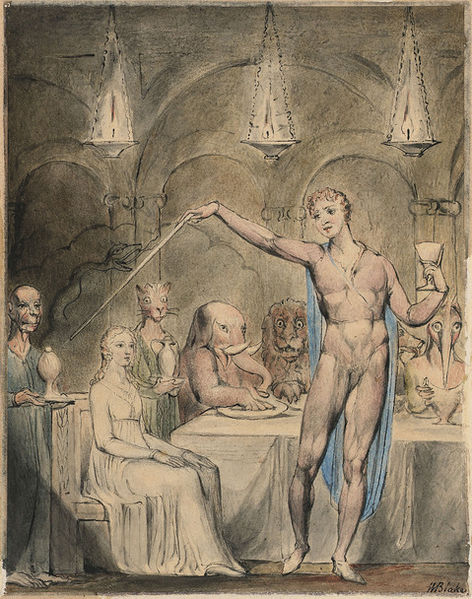|
|
|
Masque |
Oxford English Dictionary
1.a. A form of courtly dramatic entertainment, often richly symbolic, in which music and dancing played a substantial part, costumes and stage machinery tended to be elaborate, and the audience might be invited to contribute to the action or the dancing.
The masque became a clearly defined genre during the reigns of James I and Charles I; less sophisticated earlier spectacles are sometimes called entertainments to distinguish them from these Stuart masques, and post-Restoration spectacles such as Dryden's Secular Masque (1700) are not readily distinguished from other kinds of drama. For further information on early entertainments of this nature see S. Anglo ‘The evolution of the Early Tudor disguising, pageant, and mask' in Renaissance Drama (1968) New Ser. 1 3–44.
2. An entertainment in which masked participants dance; a masquerade, a masked ball.
![]()
The masque
was a form of festive courtly entertainment which flourished in sixteenth and
early seventeenth century Europe, though it was developed ...
en.wikipedia.org/wiki/Masque
(in 16th-17th
Century England & Europe) A dramatic performance, often performed at court as a
royal entertainment, consisting of dancing, dialogue, pantomime and song; Words
and music written for a masque; A shortening of the word masquerade
en.wiktionary.org/wiki/masque
masque
- a staged performance in which music, poetry, song and dance are blended;
although the word is French, and pronounced "mask," the form is more frequently
associated with English works which appeared in the time of Queen Elizabeth I.
http://patriciagray.net/Operahtmls/terms.html
John Milton, Comus (A Mask Presented at Ludlow Castle, 1634)
|
|
|


